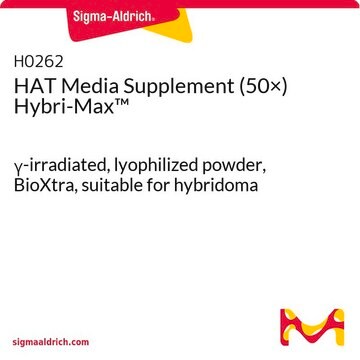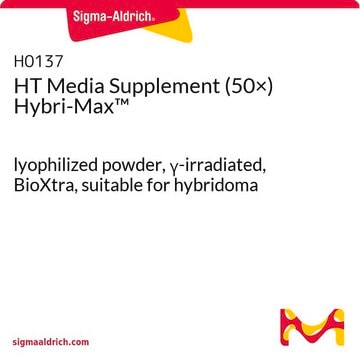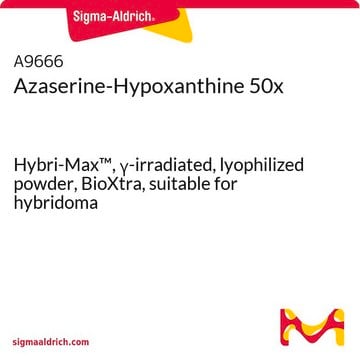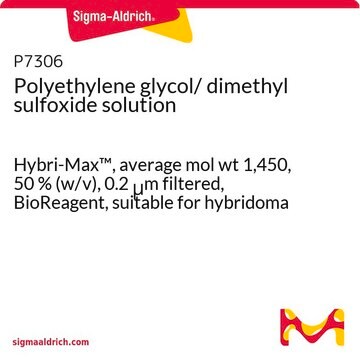11088947001
Roche
BM Condimed H1
Hybridoma Cloning Supplement
Synonym(s):
hybridoma cloning supplement
About This Item
Recommended Products
Quality Level
sterility
0.2 μm filtered
form
solution
packaging
pkg of 100 mL (10x)
manufacturer/tradename
Roche
technique(s)
cell culture | hybridoma: suitable
solubility
water: miscible
storage temp.
−20°C
General description
Cell Line Origin
Application
Features and Benefits
Solution in RPMI 1640, filtered through 0.2μm pore size membrane
Physical form
Preparation Note
Analysis Note
Other Notes
Storage Class Code
12 - Non Combustible Liquids
WGK
WGK 1
Flash Point(F)
does not flash
Flash Point(C)
does not flash
Certificates of Analysis (COA)
Search for Certificates of Analysis (COA) by entering the products Lot/Batch Number. Lot and Batch Numbers can be found on a product’s label following the words ‘Lot’ or ‘Batch’.
Already Own This Product?
Find documentation for the products that you have recently purchased in the Document Library.
Customers Also Viewed
Related Content
Major technological advances have made the production of monoclonal antibodies quicker and more efficient. There are three established platforms for antibody discovery. We offer reagents for production of monoclonal antibody libraries using each of these techniques.
Major technological advances have made the production of monoclonal antibodies quicker and more efficient. There are three established platforms for antibody discovery. We offer reagents for production of monoclonal antibody libraries using each of these techniques.
Major technological advances have made the production of monoclonal antibodies quicker and more efficient. There are three established platforms for antibody discovery. We offer reagents for production of monoclonal antibody libraries using each of these techniques.
Major technological advances have made the production of monoclonal antibodies quicker and more efficient. There are three established platforms for antibody discovery. We offer reagents for production of monoclonal antibody libraries using each of these techniques.
Our team of scientists has experience in all areas of research including Life Science, Material Science, Chemical Synthesis, Chromatography, Analytical and many others.
Contact Technical Service












